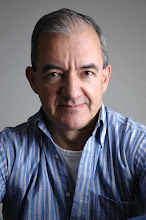Piano: Pablo D'Aquino
She may be the face I can't forget
A trace of pleasure or regret
May be my treasure or the price I have to pay,
She may be the song that Summer sings,
May be the chill that Autumn brings,
May be a hundred different things
Within the measure of a day
She may be the Beauty or the Beast
May be the famine or the feast
May turn each day into a Heaven... or a Hell,
She may be the mirror of my dream,
A smile reflected in a stream,
She may not be what she may seem inside her shell
She who always seems so happy in a crowd
Whose eyes can be so private and so proud
No one's allowed to see them when they cry
She may be the love that cannot hope to last
May come to me from shadows of the past
That I'll remember till the day I die
She may be the reason I'll survive,
The why and wherefore I'm alive,
The one I care for through the rough and ready years
Me, I'll take her laughter and her tears
And make them all my souvenirs,
For where she goes I've got to be
The meaning of my life is she...
